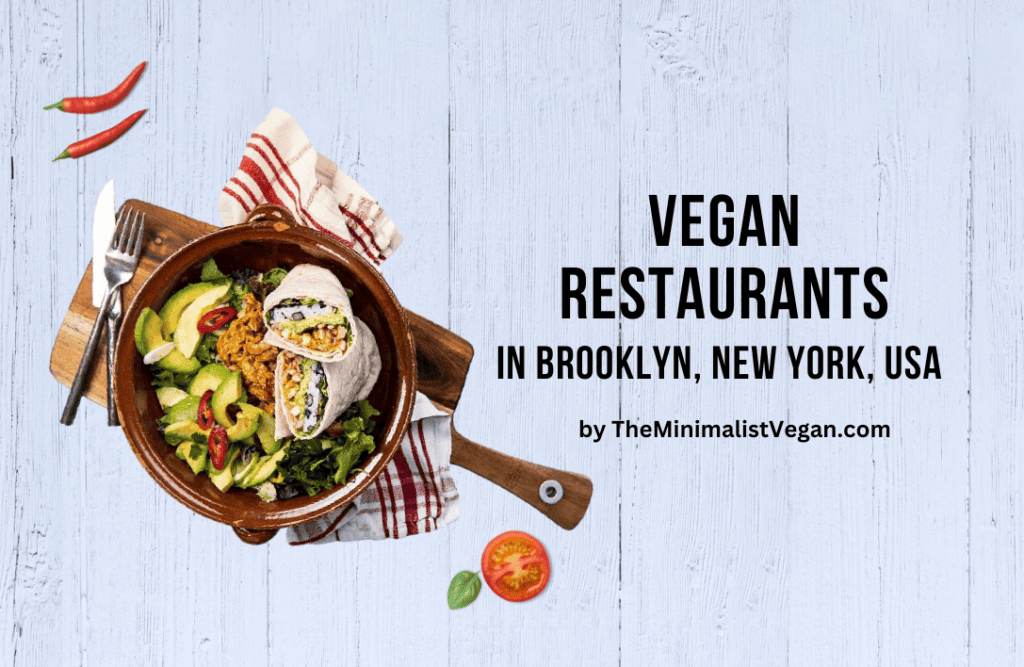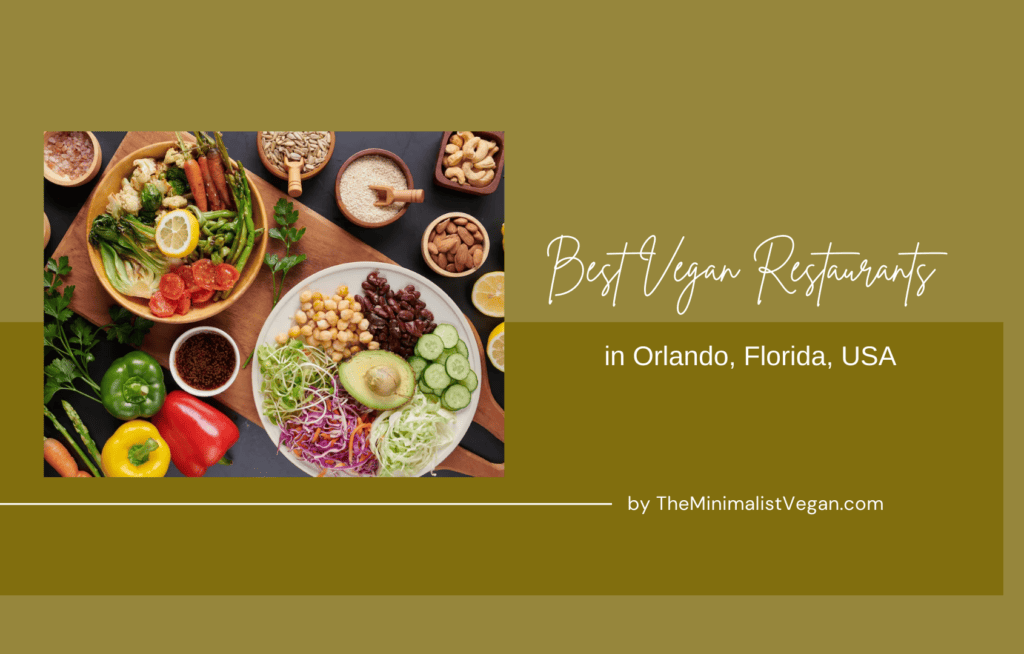Clutter has crept back into your life, and you’re disappointed in yourself for letting it happen.
We’ve certainly felt this way recently and wrote a post about the challenges of being a minimalist. We over-committed ourselves by running two websites while maintaining our day jobs.
As a result, we decided to shut down our online store so we could refocus on The Minimalist Vegan. Closing down wasn’t an easy decision, but one we felt was worth doing to get back to simplicity.
To help you get out of your clutter-rut, it’s essential to understand what constitutes being a minimalist.
Fortunately, minimalism is non-exclusive. Therefore there’s no specific standard.
“One of the things I appreciate about minimalism is that it’s a non-exclusive term. It’s not dogmatic. There are no leaders to meet. No manifestos you need to read or groups you need to join. Feel free to call yourself a minimalist if you want—no one will mind.” — Jenny Mustard
So as you read this post, please keep in mind that the pressure you feel to be a minimalist is coming from you. And as there’s no standard, please, take it easy on yourself!
Minimalism is not a competition to prove how little you own. Minimalism is about identifying what’s important and essential to you and having the courage to eliminate the rest ruthlessly. It’s about living with intentionality, simplicity and purpose.
Further reading: How To Start Being a Minimalist Today
Having said that, some glaring triggers indicate that complexity is creeping back into your life. Once you can identify what these triggers are, you can catch yourself early in the process of moving to complexity.
Below is a list of triggers as well as some useful remedies to help you feel like a minimalist again.
Trigger 1 – You’re feeling overwhelmed
You’re in over your head with the chain of events that have happened in your life, and you feel anxious and nervous.
You find yourself getting fog brain, and it seems like it’s impossible to concentrate.
Despite your best efforts to get on with life, uncertainty haunts you. It disrupts your sleep, the way you eat, and your overall mood.
Don’t worry, you’re not alone. It’s not uncommon for clutter and complexity to contribute to how you’re feeling.
Trigger 2 – You’re finding it hard to create space
A glaring reason why you don’t feel like a minimalist anymore is that you’re struggling to create physical and mental space in life.
You’re suffocating in things. Pots, pans, chopping boards, tools, toys, messy bedrooms, papers, boxes, you name it. No matter how much you tidy, things seem to keep creeping back into your space.
From a mental standpoint, you’re just playing defence and no offence, which means that you only have time to do reactionary tasks and you resent your situation because you desire to be proactive and do things that you want to do.
Read more: Design For More White Space In Your Life
Trigger 3 – You’re drowning in to-dos
You have a list within a list within a list. On top of that, you use your email inbox as another reminder of all the things you need to do.
No matter how much you fight to get to inbox zero, you can’t seem to shake the procrastination of getting back to people.
You’re at the point when you’re adding more things to your list than you’re crossing off.
Trigger 4 – You’re suffering from “The More Virus” again
“The More Virus” is a term we like to use to describe when you define success by wanting and having more. An example could be an obsessive pursuit of money, assets, and things in general.
Another example of “The More Virus” is the desire to want more out of your career or business, to the point when you feel like you’re never doing enough.
So if you catch yourself always thinking about wanting and having more, it’s a clear sign that you’re moving to complexity.
Trigger 5 – You’re always running out of time
You’re late for work. You’re late for coffee with a friend. You bought dinner out each day this week because you haven’t been at home. You’re short-changing time with your kids and pets.
The operations of life have gotten the best of you, and as a result, you don’t have time.
Remedies to the above triggers
If you feel overwhelmed, or that you have no space, or that you’re drowning in to-do’s, the next part of this post is for you.
Below are some remedies to help you get out of your clutter-rut and back to your minimalist ways.
Remember the beauty of simplicity
To get back on track, you must first visualise what it feels like to experience simplicity. What does it look like to live simply?
Does it mean not having the guilt to focus on something that you love? Is it about walking into your home and feeling content with everything you own and how it’s presented?
Does it mean feeling like you’re 100% present when you’re engaging in any conversation and relationship?
Before you go and take action, you need to define what minimalism will enable you to do in your life. And that thing you decide is going to motivate you to make a meaningful change in what you’re currently doing.
My suggestion is that you pause and write down what simplicity looks like for you. Read this document every day as a reminder.
Delete your to-do’s and start fresh
To-do lists are effective…sometimes. Other times, lists feel like there’s no end to the tasks you need to get done.
If you’re in a situation where you’re not motivated to look at your to-do’s anymore, it’s a sign that it’s time to blow up your list and start over.
There are likely tasks on your list that have been there for way too long and it’s starting to play with your confidence because you haven’t been able to complete them.
Re-writing your list will challenge you to think about the most critical tasks you need to get done today. Anything outside of the important things should stay off your list. Keep it to the must-haves and away from the nice-to-haves for now.
Do some hardcore decluttering
Maybe you’ve done some general decluttering and have been resorting to tidying instead of making the hard decisions about what to keep and what to get rid of.
To start building your minimalist muscles, be aggressive in your decluttering strategy. Be bold in what you discard.
Develop a personal uniform for the current season and donate the rest of your clothes to charity.
Give away all the tools in your shed that you haven’t used for the last two years.
Engage in a completely paperless strategy for your household.
Transform your pantry from a plastic-ridden black hole of expired food products to a mason jar filled sanctuary of zero waste whole foods.
You’ve done it for so long that it no longer feels like minimalism
I want to finish this post by acknowledging a trap I’ve come across on my minimalist journey.
When I first started getting into minimalism, each change I made felt monumental. My wife Maša and I transformed our lives by implementing the strategies discussed above, over six months.
While it’s true that we occasionally fall into a clutter-rut, many of the times we were subconsciously pushing our minimalism to another level, unknowingly.
When you live a minimalist lifestyle for so long, simplicity becomes the norm. And when you hit adversity, sometimes the tendency is to blame how you’re feeling on physical and mental clutter.
This is not necessarily always the case. Sometimes life throws us curveballs, and we need time to process and respond.
I say this to again reinforce that you shouldn’t feel the need to put unnecessary pressure on yourself to be a minimalist.
Each time we reach a new level of minimalism, we risk pushing the goal post further away, increasing your expectation gap, leaving us feeling dissatisfied.
That’s why developing mindfulness is incredibly important when living a minimalist lifestyle. If you don’t, you risk missing the point of minimalism all-together—which is more about intentionality and contentment and less about ambition and self-judgement.
What about you? Have you ever felt yourself slipping back into complexity? What did you do to reset?






What a wonderful post! Thank you!
Needed to hear this message. Thank you
You’re welcome. Glad it helped!
I feel Trigger 3 more than any. As my wife’s disability takes over more and more, the “Massive List of things only I can do” becomes longer and longer. Between the day job, the night job (since we only have one income earner) and the chores, life a has little joy any more.
Sorry to hear about your situation, it sounds very demanding. Hopefully, you can use some aspects of minimalism to create a little bit of white space in your life.
Thanks for the post Michael.
I have felt complexity creep into life as well. In the past, I have found it to be hobbies getting out of control. For example, I was introduced to home brewing beer a few years ago. I liked craft beer and I thought it would be fun. Unfortunately it is a rabbit-hole of large, bulky, expensive equipment that only serves one purpose, and there is seemingly a limitless number of things to buy. When I suddenly had to move about a year ago, I had nowhere to put it all and eventually sold everything. I also questioned what was most important for me to work on, and for me that is physical fitness. Beer on a regular basis does not align with my fitness goals, so it had to go. What I do to reduce complexity is honestly question what the most important goals I want to pursue in life are (For me it’s fitness, cooking, and travel) and if something does not contribute to those areas, it is unnecessary complexity that needs to go.
Thanks for sharing your example with us, Dominic. I really like how you start with your most important goals and ask if your actions contribute towards them!
Thank you for your comment, Alicia! I can imagine it would be stressful to save up for to buy a house. But as you said, there’s so much to be grateful for in life. It’s all about remembering what’s really important.